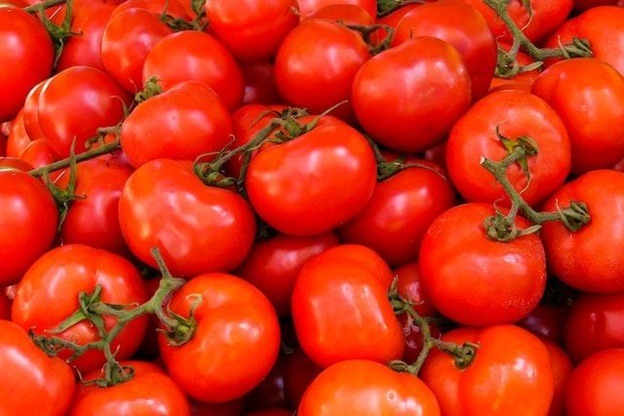Inflammation is a natural response of the immune system to harmful stimuli such as pathogens, toxins, or injuries. In the short term, inflammation is a beneficial response as it helps the body to repair damaged tissues and fight off infections.
It becomes bad when it stays long term- there day in and day out! Usually, the systemic response to inflammation– the chronic one- is in the form of various diseases, including heart disease, diabetes, cancer, and arthritis.
Lifestyle changes are crucial for fighting off inflammation. Lowering your stress levels, sleeping properly, engaging in physical activity, and eating the right food can help manage inflammation.
How Does Anti-Inflammatory Diet Work?
An anti-inflammatory diet is one of the best ways to control inflammation. An anti-inflammatory diet is designed to reduce inflammation by incorporating nutrient-dense whole foods that contain anti-inflammatory properties.
This diet can help reduce the risk of chronic diseases and improve overall health and well-being. Moreover, it can serve as a complementary therapy for diseases that worsen with chronic inflammation, such as arthritis, psoriasis, asthma, or IBS.
Anti-inflammatory is mainly based on fruits and vegetables rich in dietary antioxidants. These antioxidants remove free radicals from the body. It decreases the cell damage caused by free radicals and reduces the associated inflammation.
Therefore, it is essential to maintain a healthy and balanced diet that includes foods that have anti-inflammatory properties.
Anti-Inflammatory Diet: Top 10 Foods to Include
An anti-inflammatory diet includes a variety of whole, unprocessed, nutrient-dense foods that can help to reduce inflammation in the body. These foods include:
1. Berries
Berries, like blueberries, strawberries, raspberries, and blackberries, are a great addition to your anti-inflammatory diet. They are rich in antioxidants, such as anthocyanins and flavonoids, which eliminate free radicals, hence the inflammation. The berries also contain fiber, which helps to regulate blood sugar levels and promotes healthy digestion.
2. Leafy Greens And Cruciferous Vegetables
Leafy greens, such as spinach, kale, and collard greens, are packed with vitamins- particularly vitamin K- minerals and phytonutrients that perform well against inflammation.
Cruciferous vegetables, such as broccoli, cauliflower, Brussels sprouts, and cabbage, contain sulforaphane, which has anti-inflammatory properties. They are also rich in vitamins, minerals, and fiber, which makes them an excellent choice for a healthy diet.
3. Nuts and Seeds
Nuts and seeds, such as almonds, walnuts, chia seeds, and flaxseeds, are rich in omega-3 fatty acids, which have anti-inflammatory properties. These healthy fats are an essential part of an anti-inflammatory diet as they help to reduce inflammation and promote heart health. However, be cautious in using nuts and take only a handful daily.
4. Avocado
Avocado is a rich source of monounsaturated fats, which are good for acute inflammation. It is also high in fiber, potassium, and other nutrients that promote heart health and weight management. Moreover, avocado contains carotenoids and tocopherols, which are potent anti-cancer agents.
5. Extra Virgin Olive Oil
Extra virgin olive oil is a rich source of monounsaturated fats and polyphenols, which have anti-inflammatory effects. According to a study, consuming 1.7 ounces of olive oil daily for a year significantly decreased the inflammatory markers.
It is also a good source of vitamin E, which has antioxidant properties, reducing the damage caused by free radicals and improving overall health.
6. Fatty Fish
Fatty fish such as salmon, sardines, and tuna are rich in omega-3 fatty acids, which have anti-inflammatory properties. They are also a good source of protein, vitamin D, and other nutrients that promote heart health and brain function.
7. Tomato
Tomato contains a powerful antioxidant, lycopene, that fights off inflammation to a great extent. It reduces pro-inflammatory compounds that cause cancer. Moreover, it is rich in potassium and vitamin C, supporting the body’s overall health.
8. Lean Proteins
Lean proteins provide the body with the necessary amino acids to repair and maintain tissues, which is crucial for overall health and well-being. Additionally, they can help to reduce inflammation by providing the body with the necessary building blocks to repair damaged tissues and prevent the formation of free radicals.
Some of the best lean protein sources include chicken, turkey, legumes, and lean beef. Legumes offer an ample amount of fiber and lean proteins. Similarly, chicken is a low-fat, high-protein food, reducing inflammation and supporting your health.
9. Whole Grains
Whole grains are an excellent source of fiber, which can help to reduce inflammation by regulating blood sugar levels and promoting healthy digestion. Some of the best sources of whole grains include brown rice, quinoa, whole wheat bread, pasta, and oats.
10. Turmeric
Also called the golden spice, turmeric is a well-known anti-inflammatory. The primary compound in turmeric, curcumin, is responsible for its anti-inflammatory powers. According to research, curcumin has been beneficial in reducing inflammation associated with arthritis, diabetes, and other diseases.
Conclusion
Incorporating these foods into a balanced diet can reduce inflammation and promote overall health and well-being. Moreover, avoiding processed foods, refined sugars, and saturated fats is essential, as these can contribute to chronic inflammation and negatively impact health.


